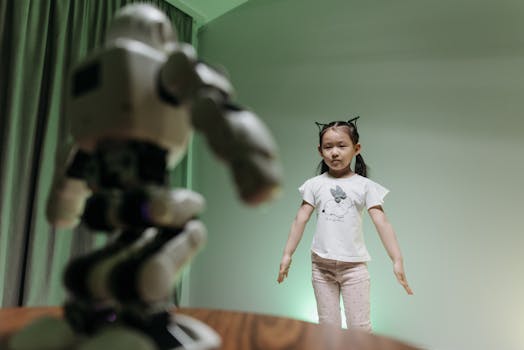
“`html
Introduction
The future of education is rapidly evolving, with 2025 poised to bring significant changes. As technology continues to advance, the way we learn, teach, and interact with educational content will transform dramatically. This article explores the future of education, focusing on key trends and innovations that will shape the learning landscape in 2025.
Technological Advancements in Education
By 2025, technology will play a crucial role in education. Virtual reality (VR) and augmented reality (AR) will become commonplace in classrooms, providing immersive learning experiences. Students will be able to explore historical sites or conduct science experiments in a virtual environment, enhancing engagement and understanding.
Moreover, artificial intelligence (AI) will automate administrative tasks, allowing educators to focus more on teaching. AI-driven platforms will analyze student performance data, providing personalized recommendations and support to enhance learning outcomes.
Personalized Learning Experiences
Personalized learning will be at the forefront of educational practices in 2025. Rather than a one-size-fits-all approach, education will become tailored to individual student needs, interests, and learning styles. Adaptive learning technologies will assess student progress in real-time, adjusting content and pace accordingly.
This shift will empower students to take charge of their learning journeys, fostering greater motivation and ownership. Educators will act as facilitators, guiding students through customized pathways that align with their goals. This is similar to the way personalized experiences are crafted in various fields.
Online Learning and Remote Education
The rise of online learning and remote education will continue in 2025, influenced by the experiences gained during the COVID-19 pandemic. Hybrid learning models will become standard, combining in-person instruction with online resources. This flexibility will accommodate diverse learning preferences and schedules.
Furthermore, global classrooms will emerge, allowing students from different geographical locations to collaborate on projects and share perspectives. This interconnectedness will enrich the educational experience, fostering cultural awareness and global citizenship.
The Role of Educators in 2025
As technology reshapes the educational landscape, the role of educators will also evolve. Teachers will transition from traditional lecturing to mentoring and coaching, focusing on developing critical thinking and problem-solving skills. Professional development will be essential to equip educators with the necessary skills to leverage technology effectively.
Collaboration among educators will be vital, fostering a community of practice where teachers share ideas and resources. This collaborative approach will enhance teaching quality and student success.
Conclusion
The future of education in 2025 promises to be exciting and transformative. With technological advancements, personalized learning experiences, and a shift in the role of educators, students will benefit from a more engaging and effective learning environment. As we look ahead, embracing these changes will be crucial in preparing students for success in an ever-evolving world.
“`






